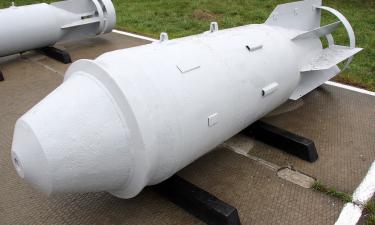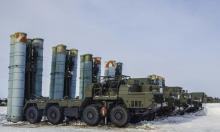Lebanese officials have found sample of killer flu virus
Lebanese authorities on Wednesday found the world's last missing sample of a killer influenza virus and are keeping it in a "safe place" while awaiting instructions on what to do with it, a Health Ministry official said.
The sample was found at Beirut's International Airport and officials are waiting for orders from the U.N. World Health Organization on whether to destroy in Beirut or send it back to them.
"It is at the airport. It is sealed in a safe place," Dr. Walid Ammar, the Health Ministry's director general, told The Associated Press. "We are sure it's the missing sample."
"Everything is under control," he added, responding to a question whether there are any dangers.
WHO spokeswoman Maria Cheng said Lebanon's Ministry of Health asked that the package be sent somewhere else.
"They didn't want it in Lebanon," she said.
She added that WHO contacted the U.S.-based College of American Pathologists to see if they would accept return of the package back or if they wanted to ship it to another lab to be destroyed.
Earlier, WHO said that all samples of the killer influenza virus mistakenly sent outside the United States have been destroyed except for one in Lebanon.
Ammar, the ministry official, said the sample was intended for Beirut's American University Hospital.
The hospital is collaborating with the Health Ministry and WHO "on the safest means to handle this shipment, which will be ultimately destroyed under strict guidelines," said Dr. Ghazi Zaatari, professor and chairman of Pathology and Laboratory Medicine, in a statement released by AUH.
"I would like to take this opportunity to reassure that there is no serious threat to the public and the issue is being handled in the most responsible way by all parties concerned," Zaatari said.
AUH had been expecting a kit of unknown material as part of the proficiency testing it participates in with the College of American Pathologists for the purpose of accreditation, the statement said. But instead of the "unknown samples," strains of Influenza H2N2 were mistakenly shipped to AUH and a number of laboratories across the world.
AUB did not receive the strains, which are now at the airport, the statement said.
"We expect the issue to be resolved within the next 24 hours," said Zaatari.
Because of fears of a global pandemic should the virus be released, WHO has been urging the destruction of the 50-year-old H2N2 virus. The kits were sent to 61 laboratories in 18 countries outside the United States.
U.S. laboratories received the vast majority of the 3,747 kits sent out in October and February.
The so-called "Asian flu" strain of 1957 killed between 1 million and 4 million people. It has not been included in flu vaccines since 1968, and anyone born after that date has little or no immunity to it.
Most of the samples were sent starting last year at the request of the College of American Pathologists, which helps labs do proficiency testing.
BASSEM MROUE, Associated Press Writer
Subscribe to Pravda.Ru Telegram channel, Facebook, RSS!





